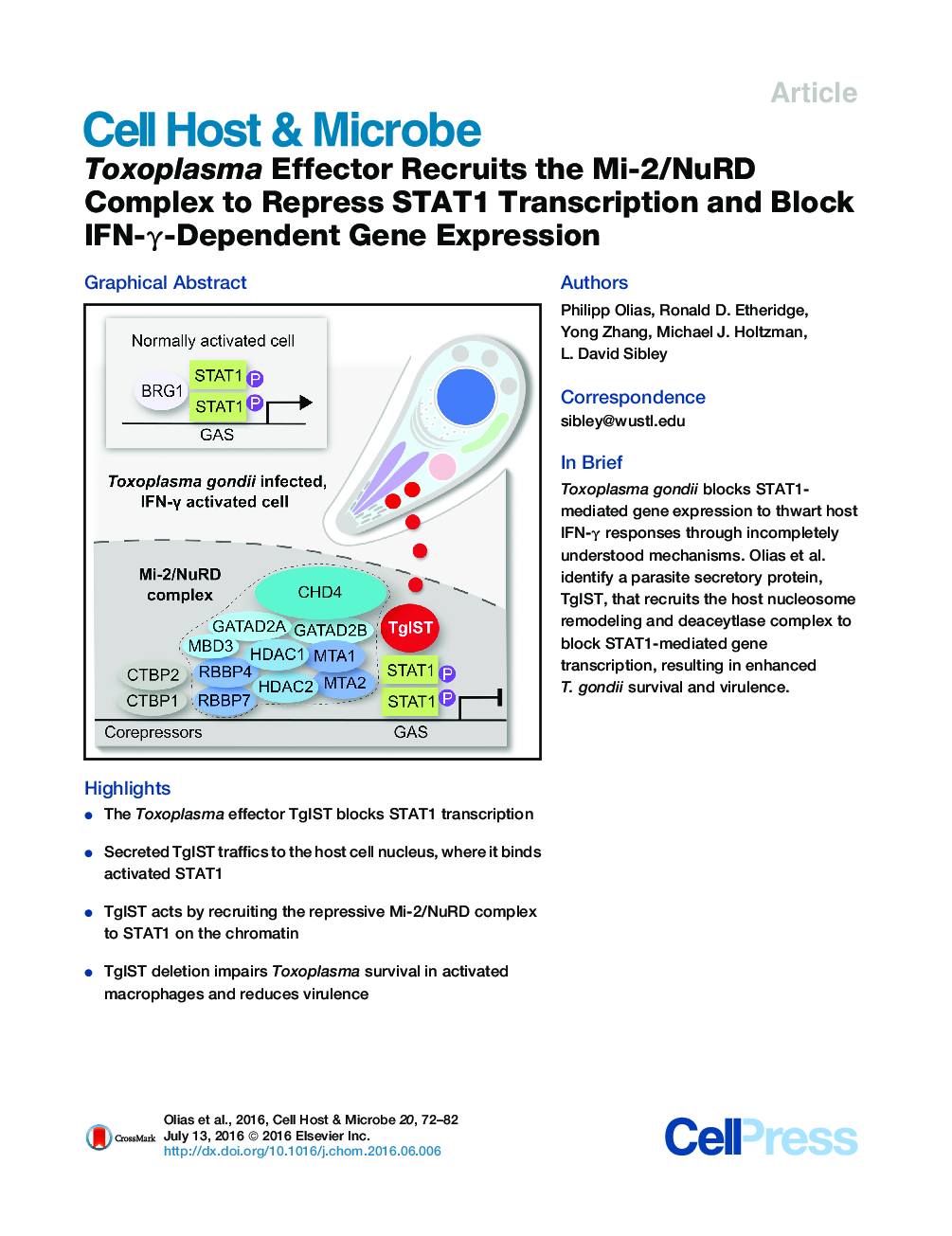| Article ID | Journal | Published Year | Pages | File Type |
|---|---|---|---|---|
| 4360814 | Cell Host & Microbe | 2016 | 11 Pages |
•The Toxoplasma effector TgIST blocks STAT1 transcription•Secreted TgIST traffics to the host cell nucleus, where it binds activated STAT1•TgIST acts by recruiting the repressive Mi-2/NuRD complex to STAT1 on the chromatin•TgIST deletion impairs Toxoplasma survival in activated macrophages and reduces virulence
SummaryInterferon gamma (IFN-γ) is an essential mediator of host defense against intracellular pathogens, including the protozoan parasite Toxoplasma gondii. However, prior T. gondii infection blocks IFN-γ-dependent gene transcription, despite the downstream transcriptional activator STAT1 being activated and bound to cognate nuclear promoters. We identify the parasite effector that blocks STAT1-dependent transcription and show it is associated with recruitment of the Mi-2 nucleosome remodeling and deacetylase (NuRD) complex, a chromatin-modifying repressor. This secreted effector, toxoplasma inhibitor of STAT1-dependent transcription (TgIST), translocates to the host cell nucleus, where it recruits Mi-2/NuRD to STAT1-dependent promoters, resulting in altered chromatin and blocked transcription. TgIST is conserved across strains, underlying their shared ability to block IFN-γ-dependent transcription. TgIST deletion results in increased parasite clearance in IFN-γ-activated cells and reduced mouse virulence, which is restored in IFN-γ-receptor-deficient mice. These findings demonstrate the importance of both IFN-γ responses and the ability of pathogens to counteract these defenses.
Graphical AbstractFigure optionsDownload full-size imageDownload high-quality image (216 K)Download as PowerPoint slide
